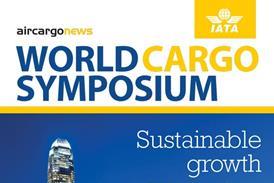CONSTANT vigilance was the message at IATA’s World Cargo Symposium opening plenary.
Both Des Vertannes, global head of cargo, and Giovanni Bisignani, chief executive officer, warned that while the post-financial crisis recovery has been encouraging, unforeseen events, such as the Middle Eastern civil unrest, can have significant impacts on that restoration.
The industry remains “shell-shocked and fragile” Bisignani said, but after such a prolonged period of recorded losses any result “which was not red” was a major achievement, he added.
Of immediate concern has been the sudden spike in oil prices, with high fuel prices killing profitability, Bisignani said. If oil prices rise to US$96 a barrel then the aviation industry’s profits would fall 46 per cent. This would mean a 1.6 per cent profit margin, more like a charitable organisation than a commercial industry.
Curiously for the head of an aviation organisation, Bisignani repeatedly questioned why cargo had not implemented security and e-freight processes at the same speed as the passenger side of the business.
When Air Cargo News asked him to clarify IATA’s plan to achieve 100 per cent adoption of e-freight by the end of 2015 he claimed that setting those targets was the prime driver, followed by putting pressure on the chief executives of airlines who would then in turn put pressure on their cargo departments. This is perhaps not the fully thought-out message of facilitation and consideration for the entire supply chain that many non-airline members of the industry were hoping for.
Vertannes, thankfully, was more forgiving: “Let’s not underestimate the size of the task,” he said, detailing the amount of work required to make countries e-freight compatible and liaising with such a wide variety of stakeholders.
However, there continues to be reluctance by speakers and delegates to address how heightened security and e-freight should be paid for, with everyone believing everyone else should bear the brunt of the cost.



















